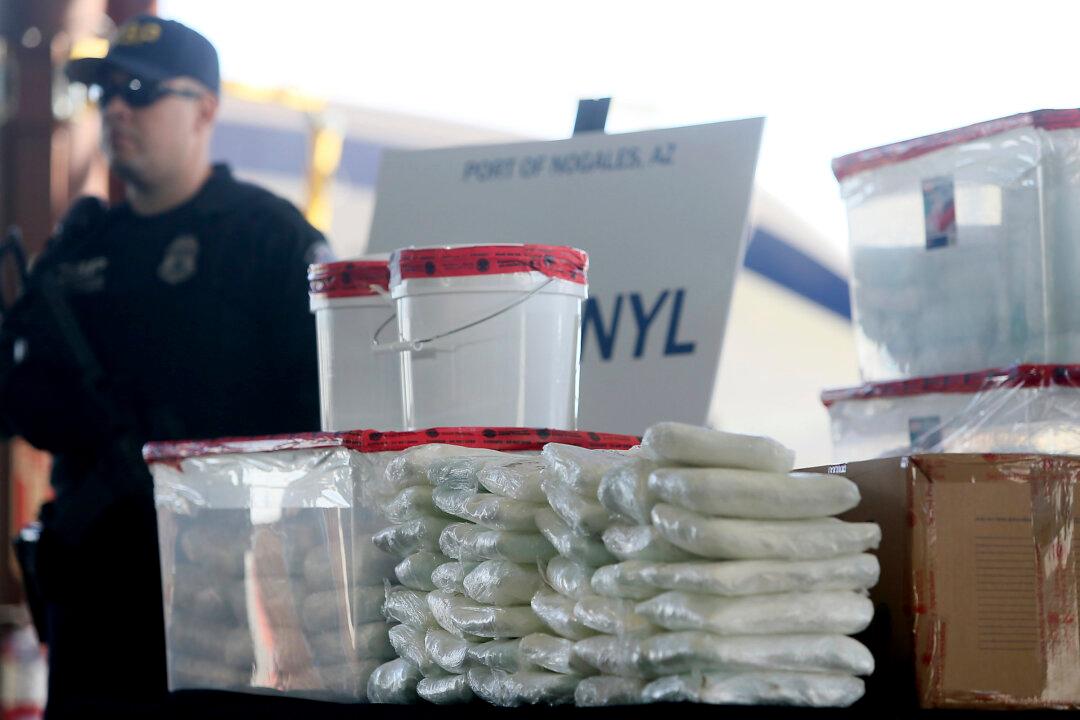A former Mexican police officer who was residing in the United States illegally has been formally charged with trafficking fentanyl that could have killed more than 10 million people, the Department of Justice announced on July 26.
Fentanyl is a powerful synthetic opioid that’s 50 times more potent than heroin. The former cop, Assmir Contreras-Martinez, 30, of Tucson, Arizona, was busted in May 2019.




